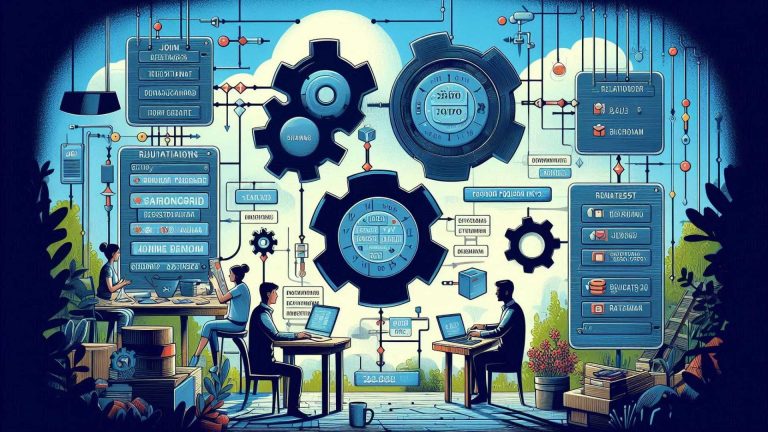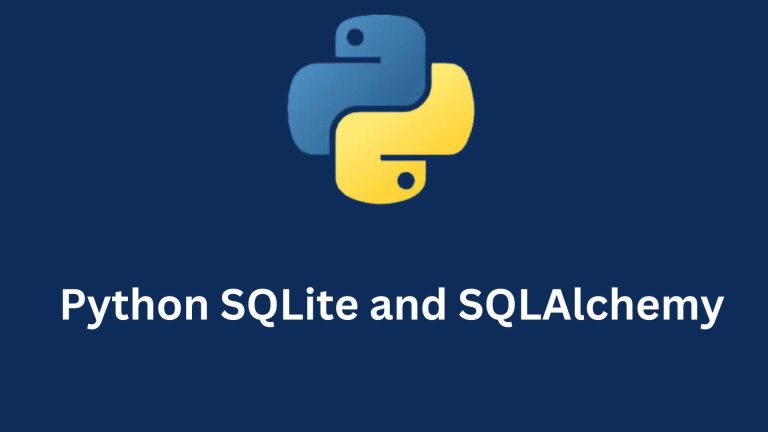Data science roles vary from analysis to infrastructure, development, and strategy, contributing crucial skills for successful data projects.
Data Science Roles: Responsibilities and Key Contributions
Data science roles encompass a diverse spectrum: Data Scientists analyze data, Engineers build data infrastructure, Architects design strategies, Developers create tools, Product Owners define requirements, Analysts derive insights, Process Masters optimize processes, and Subject Matter Experts provide domain expertise.
- Data Scientist: Analyzes complex data sets, develops statistical models, and creates algorithms to derive insights and solve business problems.
- Data Engineer: Builds and maintains the data infrastructure that enables data scientists to work with large amounts of data.
- Data Science Architect: Designs and implements the overall data science strategy and architecture.
- Data Science Developer: Develops and maintains data science tools and applications.
- Data Science Product Owner: Defines and prioritizes data science product requirements.
- Data/Business Analyst: Analyzes data to identify trends and insights that drive business decisions.
- Process Master: Defines and optimizes data science processes to ensure efficiency and effectiveness.
- Subject Matter Expert: Provides domain-specific knowledge and expertise to support data science projects.
As data science roles encompass various responsibilities, these professionals must possess a diverse skill set and qualifications. This breadth of expertise ensures they contribute effectively to data science projects and meet the demands of the rapidly evolving field.

Data Science Roles: Required Skills and Qualifications
Data science roles vary from analyzing data, building infrastructure, and designing strategies to developing tools, defining product requirements, and providing domain expertise. Key roles include Data Scientist, Data Engineer, Architect, Developer, Product Owner, Analyst, Process Master, and Subject Matter Expert, each with distinct responsibilities and qualifications.
Data Scientist:
- Develop statistical models, machine learning algorithms, and predictive analytics solutions to address business challenges.
- Analyze large amounts of complex data to extract insights and drive decision-making.
- Design experiments to test hypotheses and measure the effectiveness of solutions.
- Collaborate with data engineers and data analysts to collect and preprocess data, and build and maintain data pipelines.
- Use data visualization tools to communicate insights and findings to stakeholders.
Typical qualifications include:
- Bachelor’s or Master’s degree in math, stats, computer science, data science, or related quantitative field.
- Strong programming skills in Python or R.
- Strong SQL skills and understanding of databases.
- Strong experience with machine learning algorithms and libraries such as sci-kit-learn, TensorFlow, or PyTorch.
- Familiarity with data visualization tools such as Tableau, Power BI, or matplotlib.
- Strong analytical and problem-solving skills, with the ability to work with complex and unstructured data.
- Strong communication skills and ability to work collaboratively with cross-functional teams.
Data Engineer:
- Design, build, and maintain the infrastructure that enables the data science team to work with large amounts of data.
- Ensure data is available when and where it is needed, and that it is of high quality.
Typical qualifications include:
- Bachelor’s or Master’s degree in computer science, engineering, statistics, or a related field.
- Prior experience as a data scientist, product manager, or as software manager.
- Excellent project management skills, with the ability to develop and implement project plans that meet business objectives.
- Strong leadership and communication skills, with the ability to motivate and mentor team members and collaborate with stakeholders.
- Excellent problem-solving skills, with the ability to identify and mitigate risks and issues that impact project delivery.
- Familiarity with data science tools and technologies, such as Python, R, SQL, and Hadoop.
Data Science Architect:
- Designs and implements the overall data science strategy and architecture.
Typical qualifications include:
- Bachelor’s or Master’s degree in computer science, engineering, statistics, or a related field.
- Strong experience in data science and architecture.
- Excellent project management skills, with the ability to develop and implement project plans that meet business objectives.
- Strong leadership and communication skills, with the ability to motivate and mentor team members and collaborate with stakeholders.
- Excellent problem-solving skills, with the ability to identify and mitigate risks and issues that impact project delivery.
- Familiarity with data science tools and technologies, such as Python, R, SQL, and Hadoop.
Data Science Developer:
- Develops and maintains data science tools and applications.
Typical qualifications include:
- Bachelor’s or Master’s degree in computer science, engineering, statistics, or a related field.
- Strong programming skills in Python or R.
- Strong SQL skills and understanding of databases.
- Strong experience with machine learning algorithms and libraries such as sci-kit-learn, TensorFlow, or PyTorch.
- Familiarity with data visualization tools such as Tableau, Power BI, or matplotlib.
- Strong analytical and problem-solving skills, with the ability to work with complex and unstructured data.
- Strong communication skills and ability to work collaboratively with cross-functional teams.
Data Science Product Owner:
- Defines and prioritizes data science product requirements.
Typical qualifications include:
- Bachelor’s or Master’s degree in business, computer science, or a related field.
- Strong experience in product management.
- Excellent project management skills, with the ability to develop and implement project plans that meet business objectives.
- Strong leadership and communication skills, with the ability to motivate and mentor team members and collaborate with stakeholders.
- Excellent problem-solving skills, with the ability to identify and mitigate risks and issues that impact project delivery.
- Familiarity with data science tools and technologies, such as Python, R, SQL, and Hadoop.

Data/Business Analyst:
- Analyzes data to identify trends and insights that drive business decisions.
Typical qualifications include:
- Bachelor’s or Master’s degree in business, computer science, or a related field.
- Strong analytical and problem-solving skills, with the ability to work with complex and unstructured data.
- Strong communication skills and ability to work collaboratively with cross-functional teams.
- Familiarity with data visualization tools such as Tableau, Power BI, or matplotlib.
Process Master:
- Defines and optimizes data science processes to ensure efficiency and effectiveness.
Typical qualifications include:
- Bachelor’s or Master’s degree in business, computer science, or a related field.
- Strong experience in process management.
- Excellent project management skills, with the ability to develop and implement project plans that meet business objectives.
- Strong leadership and communication skills, with the ability to motivate and mentor team members and collaborate with stakeholders.
- Excellent problem-solving skills, with the ability to identify and mitigate risks and issues that impact project delivery.
- Familiarity with data science tools and technologies, such as Python, R, SQL, and Hadoop.
Subject Matter Expert:
- Provides domain-specific knowledge and expertise to support data science projects.
Typical qualifications include:
- Bachelor’s or Master’s degree in a relevant domain.
- Strong domain knowledge.
- Strong analytical and problem-solving skills, with the ability to work with complex and unstructured data.
- Strong communication skills and ability to work collaboratively with cross-functional teams.
- Familiarity with data science tools and technologies, such as Python, R, SQL, and Hadoop.
As these key roles in data science teams encompass varied responsibilities and qualifications, they form the backbone of successful data science projects. Each team member, from Data Scientist to Subject Matter Expert, contributes uniquely to project success through their specialized expertise and responsibilities.
Data Science Roles: Essential Team Members for Project
Within a data science team, each role contributes to the overall success of data science projects:
- Data Scientist: Responsible for data analysis, machine learning, and data visualization.
- Data Engineer: Responsible for data infrastructure and data pipeline management.
- Data Science Architect: Responsible for data science strategy and architecture.
- Data Science Developer: Responsible for data science tool development and integration.
- Data Science Product Owner: Responsible for data science product definition and prioritization.
- Data/Business Analyst: Responsible for data analysis and business insights.
- Process Master: Responsible for process definition and optimization.
- Subject Matter Expert: Responsible for domain expertise and insights
The crucial roles outlined in data science teams are essential for project success, with each member contributing specialized skills and responsibilities. This team dynamic forms a strong foundation for effective data science projects.
Additionally, the data science field offers high demand, lucrative salaries, and significant growth opportunities, making it an attractive career path for skilled professionals across various roles like Data Scientist, Data Engineer, and others.
Data Science Roles: High Demand, High Salaries, and Growth
Data science is a rapidly growing field with high demand for skilled professionals. The career prospects for data science roles are excellent, with high salaries and ample opportunities for growth and advancement.
Some of the top data science career opportunities include:
- Data Scientist
- Data Analyst
- Data Engineer
- Data Architect
- Business Intelligence Analyst
- Statistician
- Machine Learning Engineer
- Data scientists, in particular, have very strong career prospects. They are in high demand across industries and can command high salaries, with an average of $105,000-$165,000 per year in the U.S. As data science continues to grow, the job market for data scientists is expected to grow by 28% through 2026.
- Other data science roles like data engineers, data architects, and machine learning engineers also have excellent career prospects as organizations increasingly rely on data and automation.
- Salaries for these roles range from $102,000 to $155,000 per year depending on experience level.
- As data scientists gain more experience, they can progress into more advanced roles like senior data scientist, lead data scientist, and eventually data science director or chief data officer.
- These roles require 8-16+ years of experience and can pay over $155,000 per year.
The data science field not only promises high demand, lucrative salaries, and substantial growth opportunities but also relies heavily on key team members. These roles, from Data Scientist to Subject Matter Expert, form a cohesive unit responsible for driving successful data science projects with their specialized skills and contributions.

Data Science Roles: Key Team Members, their Responsibilities
A typical data science team consists of several key roles that work together to deliver data science projects:
- Data Scientist: Responsible for data analysis, machine learning, and data visualization
- Data Engineer: Responsible for data infrastructure and data pipeline management
- Data Science Architect: Responsible for data science strategy and architecture
- Data Science Developer: Responsible for data science tool development and integration
- Data Science Product Owner: Responsible for data science product definition and prioritization
- Data/Business Analyst: Responsible for data analysis and business insights
- Process Master: Responsible for process definition and optimization
- Subject Matter Expert: Responsible for domain expertise and insights
Each role contributes specialized skills at different stages of the data science project lifecycle. The team works collaboratively to ensure projects are successful in delivering value to the organization.
Data Science Roles in the Data Science Project Life Cycle
The relative focus of each data science role varies across the different phases of a data science project:
| Role | Data Understanding | Data Preparation | Modeling | Evaluation | Deployment |
| Data Scientist | High | High | High | High | Medium |
| Data Engineer | High | High | Medium | Low | High |
| Data Science Architect | High | Medium | Medium | Medium | High |
| Data Science Developer | Medium | Medium | High | High | High |
| Data Science Product Owner | Low | Low | Medium | High | High |
| Data/Business Analyst | High | Medium | Low | High | Low |
| Process Master | Medium | High | Medium | High | High |
| Subject Matter Expert | High | Medium | High | High | Medium |
By understanding the focus of each role, teams can ensure the right skills are applied at each stage to drive successful project outcomes.
Data Science Roles: High Demand, Salaries and Growth
The career prospects for data science roles are very strong, with high demand, high salaries, and ample opportunities for growth and advancement:
- Data Scientist: High demand, high salary ($105,000-$165,000), and high growth prospects
- Data Engineer: High demand, high salary ($102,000-$155,000), and high growth prospects
- Data Science Architect: High demand, high salary ($102,000-$155,000), and high growth prospects
- Data Science Developer: High demand, high salary ($102,000-$155,000), and high growth prospects
- Data Science Product Owner: High demand, high salary ($102,000-$155,000), and high growth prospects
- Data/Business Analyst: High demand, high salary ($102,000-$124,000), and high growth prospects
- Process Master: High demand, high salary ($102,000-$155,000), and high growth prospects
- Subject Matter Expert: High demand, high salary ($102,000-$155,000), and high growth prospects
As data science professionals gain more experience, they can progress into more advanced roles like senior data scientist, lead data scientist, and eventually data science director or chief data officer, earning over $155,000 per year.

Conclusion
Data science is a rapidly growing field with excellent career prospects across a variety of roles. Data science teams consist of several key roles that work together to deliver successful projects. Each role contributes specialized skills at different stages of the project lifecycle. As data science continues to grow in importance, the demand for skilled professionals will only increase, making it an attractive career path with ample opportunities for growth and advancement.
To seize this opportunity, we offer a self-paced program empowering IT students with essential data science fundamentals, preparing them with industry-ready skills at an affordable cost. Trizula Mastery in Data Science equips aspiring professionals with contemporary technology knowledge, laying the groundwork for advanced fields like AI, ML, and NLP. This program ensures students become job-ready by graduation, providing a solid foundation for future career advancement. Why wait? Click here to get started!
FAQs:
1. What are the top data science career opportunities?
Top career opportunities in data science include Data Scientist, Data Analyst, Machine Learning Engineer, Data Engineer, Business Intelligence Analyst, Statistician, Big Data Engineer, Data Architect, AI Research Scientist, Database Administrator, Quantitative Analyst, and Data Visualization Specialist.
2. What is the average salary for a data scientist in the U.S.?
As of 2024, the average salary for a data scientist in the U.S. is approximately $105,000-$165,000 per year. This figure can vary based on factors such as experience, location, education, and the specific industry.
3. What percentage of data scientists hold an advanced degree?
Approximately 90-95 % of data scientists hold an advanced degree, such as a Master’s or Ph.D. This high percentage reflects the specialized skills and knowledge required in the field.
4. What is the expected job growth for data scientists through 2026?
The expected job growth for data scientists through 2026 is projected to be around 28%, according to the U.S. Bureau of Labor Statistics. This rapid growth highlights the increasing demand for data science skills across various industries.
5. What are some key skills needed to become a data scientist?
Key skills needed to become a data scientist include proficiency in programming (Python, R, SQL), statistical analysis, machine learning, data visualization, data wrangling, mathematics, big data technologies, domain knowledge, problem-solving, and strong communication abilities.



